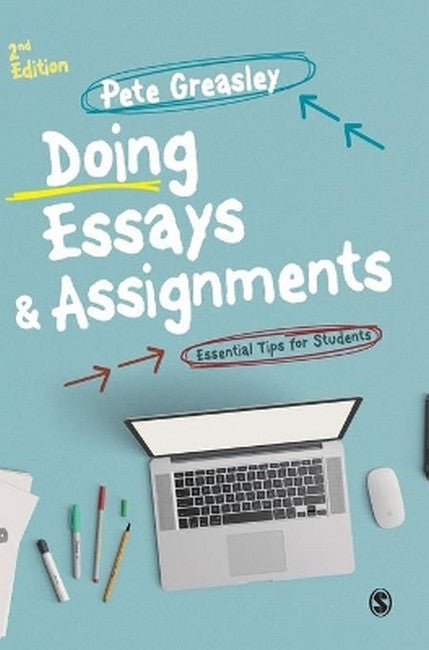Pete Greasley is a Teaching Fellow in the Division of Health Research at Lancaster University. He has been marking student assignments for more years than he would care to remember, and not particularly enjoying it. He has conducted research and published academic articles in psychology, sociology, health, and education, and has also written an introductory book on quantitative data anal-ysis. Research and teaching interests include psychological and social issues relating to health, sceptical inquiry relating to pseudo-science and the para-normal, and how to help students avoid common mistakes when writing their assignments. He currently spends much of his time supervising trainee clinical psychologists doing their research projects at Lancaster University.
Request Academic Copy
Please copy the ISBN for submitting review copy form
Description
An insight into the marking process How to impress and how to distress markers Before you start, some rules of the game Getting started . . . and getting finished Reading and researching the literature Introductions, conclusions, and structure What was the question again? Critical analysis, perspective and argument The greatest source of 'marker distress': language, grammar and expression Referencing - an academic fetish for the anally retentive? Plagiarism How not to present graphs and charts Presenting your assignment: first impressions count Feedback and feed-forward Writing research/project reports Doing a Systematic Literature Review Presentation: A fate worse than death? Group project work (or 'hell is other people')
This book is a no-nonsense, unique proposition for students who want to take an extra effort to improve their grades. It clearly demonstrates how to impress markers by demonstrating some crucial university-level skills, or what essay-writing has to do with eating an elephant. If you are a student or a parent of a student, this book is a small investment which can bring tangible results!' -- Kamil Zwolski This book offers students an accessible, witty but insightful look at key assessment skills. The new edition addresses how to succeed at various assessment types including the thorny issue of group work! A worthwhile addition for all new students embarking on higher education. -- Louise Platt

